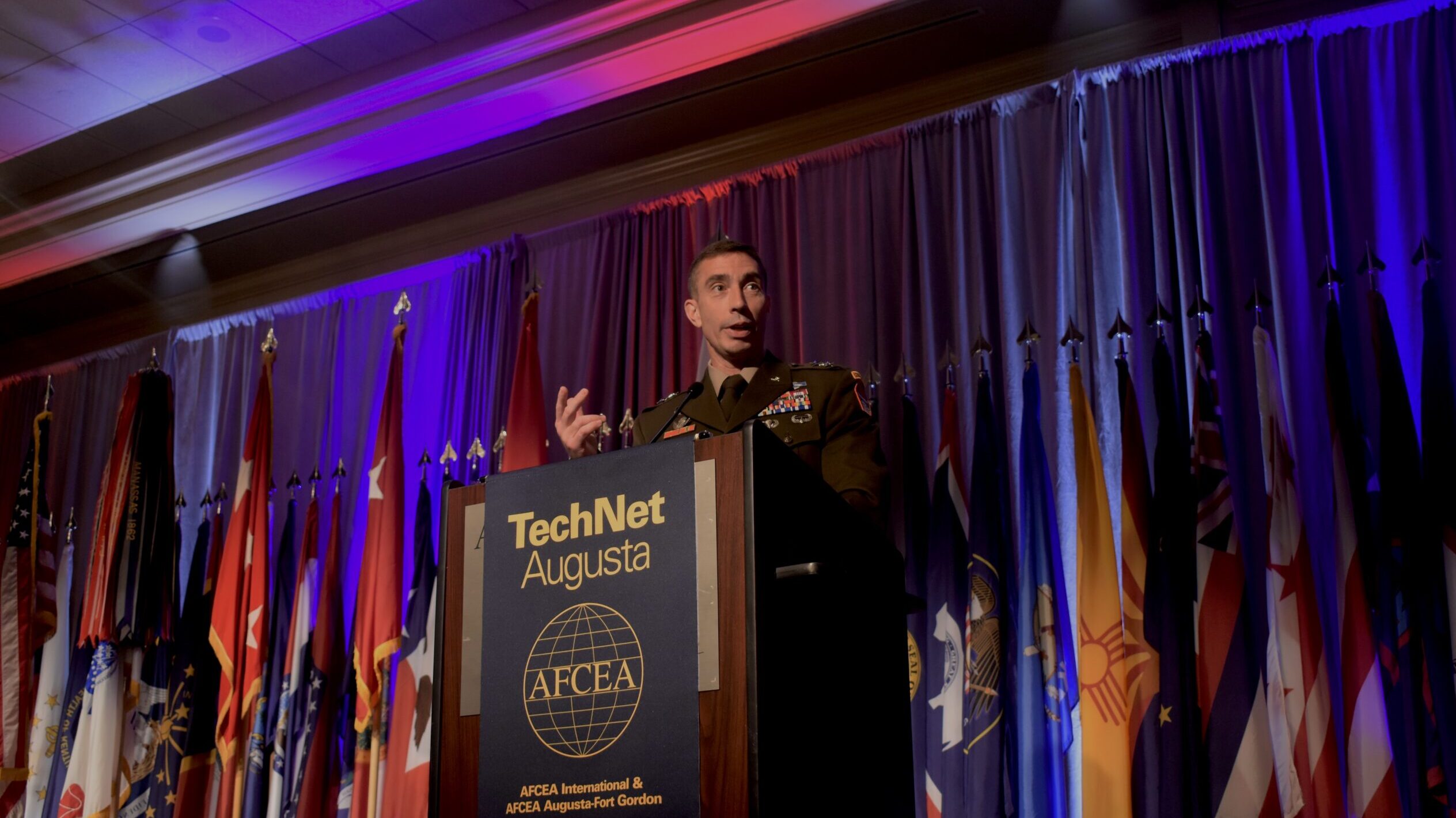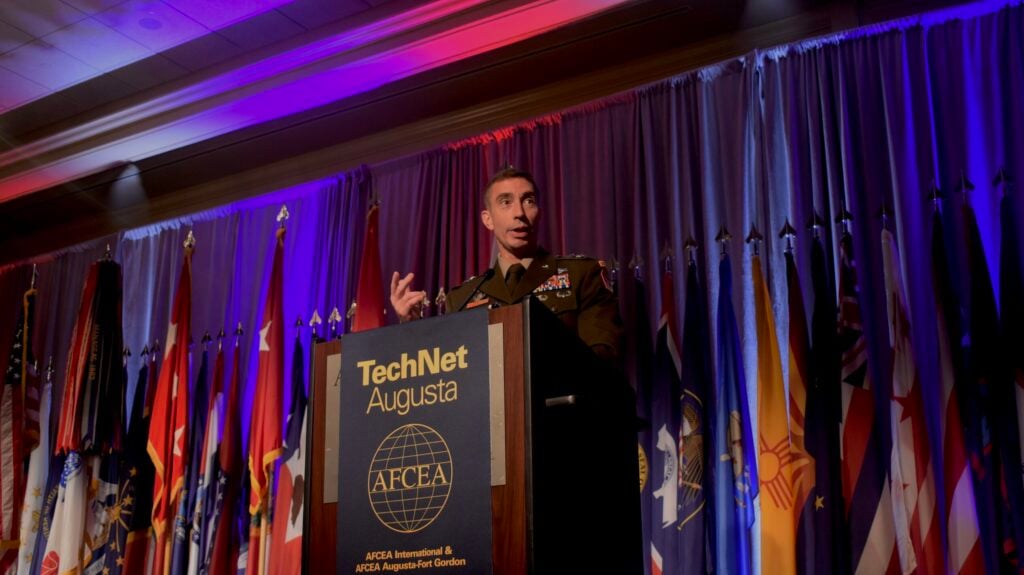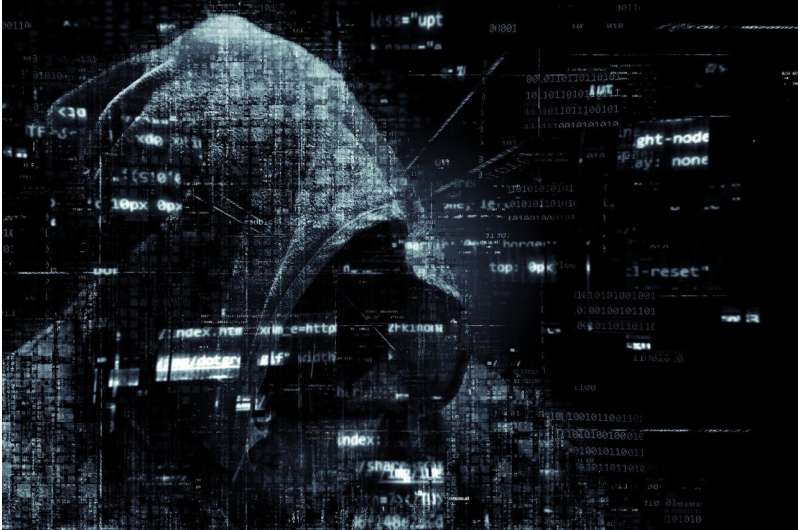Army cyber officials want to harness AI, but not over-hype

U.S. Army Cyber Center of Excellence and Fort Gordon Commanding General, Maj. Gen. Paul Stanton, welcomes attendees to AFCEA’s TechNet Augusta 2022 at the Augusta Marriott Convention Center in Augusta, Georgia, on August 16th, 2022. (Photo by Capt. Rebecca Harr)
AFCEA AUGUSTA 2023 — Army cyber leaders want to harness the potential of artificial intelligence for a role in future operations, but are trying to balance excitement about the capabilities with caution not to get hopes up on how soon it can make a real difference.
Speaking to reporters Aug. 17 at the AFCEA TechNet Augusta conference, officials said the service is actively exploring ways AI can be used in offensive operations against its networks, while service coders are looking at how it can also benefit them.
“But we’re not developing someone that understands how to write code — what we are developing is someone that understands that artificial intelligence is predicated on the aggregation of a lot of data,” Maj. Gen. Paul Stanton, commander of the Cyber Center of Excellence (CCoE), said.
“And so, separately, within our cyber workforce and specifically coordination with Army Cyber Command, we’re thinking a lot about what does it mean to develop confidence and an externally derived dataset upon which an AI algorithm is run,” he added. “So if I’m pulling in data from lots of different places, what degree of confidence do I have in individual data set that I didn’t generate?”
The CCoE is currently running a pilot program with Army Futures Command on how large language models can support doctrine-based research, he added.
“So if a soldier wants to ask a ChatGPT-like question that says, you know, ‘How do I execute a doctrinally correct wet gap crossing?,’ then you would get back an answer, because the large language model had surveyed all of our doctrine in order to support an informed response,” he said. “We’re in the early stages of it. But my point is we’re not sitting on the sidelines and watching, we’re diving in.”
He said that at least one member of every center of excellence has been tasked by Lt. Gen. Milford Beagle from the Combined Arms Center to attend a…


